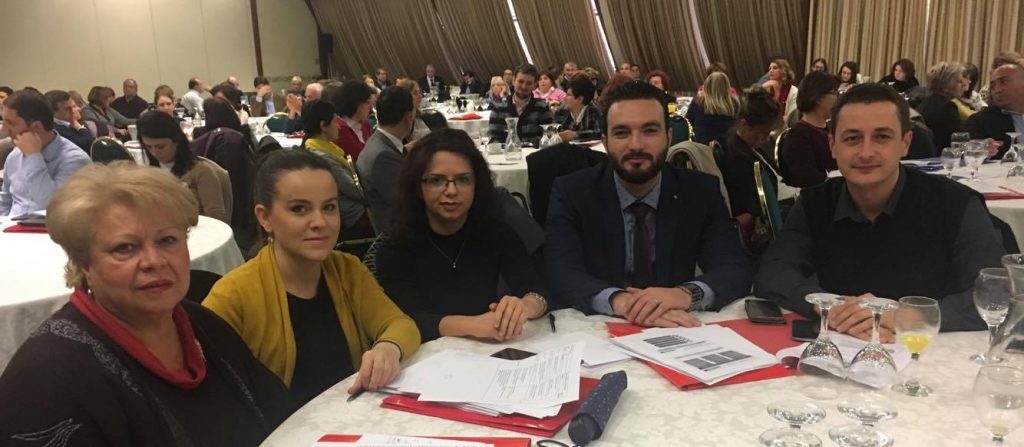Within the framework of the realization of the Annual Program for Continuing Professional Development for 2017, Acting President of the Council for the Advancement and Oversight of the Audit of the Republic of Macedonia, Mr. Premim Iseni, with the staff of the professional working service of the Council, attended the last cycle of classes for 2017 organized by the Institute of Certified Auditors of the Republic of Macedonia. The Event was held on November 29th, November 30th and December 1st 2017 in Holiday Inn Skopje.
This training cycle organized by the Institute was the first joint training of the members of the Institute of Certified Auditors of the Republic of Macedonia and the members of the Institute of Chartered Accountants. The three-day training included the following topics:
- List of disclosure checks in the Financial Statements in accordance with the standards for financial audits applied by the entity,
- IFRS 3 – Business combinations,
- IFRS 15 – Revenue from contracts with customers,
- Taxation of profits – the need to change the legislation,
- Application of an IT expert in the audit of the financial statements,
- IFAC Code of Ethics for Professional Accountants – NOCLAR and New Challenges to the Audit Profession, and
- ISA 570 – Continuity, ISA 705 – Modifications to the Independent Auditor’s Report and ISA 706 – Paragraph for highlighting issues and paragraphs on other issues in the Independent Auditors’ Report.
Prof. Dr. Zorica Bozhinovska Lazarevska from the Faculty of Economics in Skopje, who is a member of the Council, had a presentation of the new changes to the IFAC Code of Ethics, which are being implemented this year. A special emphasis was placed on the NOCLAR standard, which refers to serious and harmful (dangerous) inconsistencies with the laws and regulations for which professional accountants are suspected or have indications that they exist and gives guidance on how to act in that case bearing in mind its responsibility to the public.
In the final completed part of the annual CPD presented the theoretical bases with an overview of the weaknesses of the area observed during quality control from the team of the Audit Authority of the Republic of Macedonia and practical examples through an overview of the manner of documenting in an audit file in accordance with the requirements of the standards.


